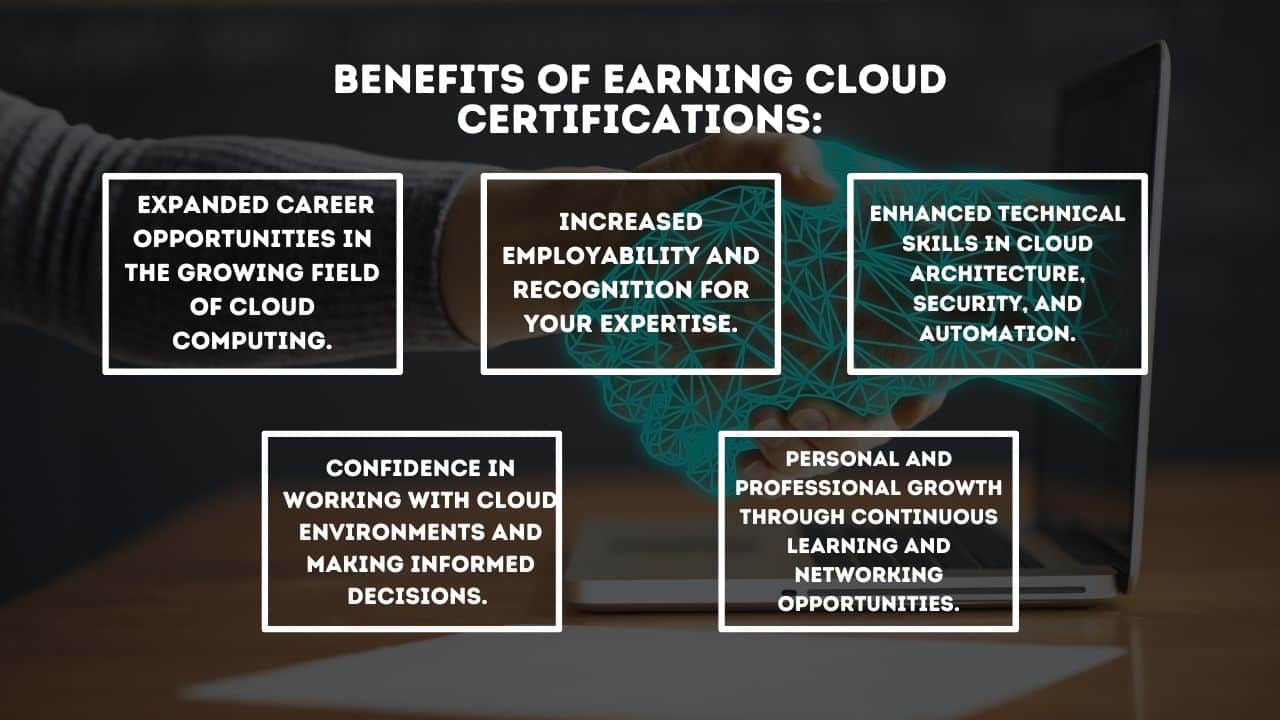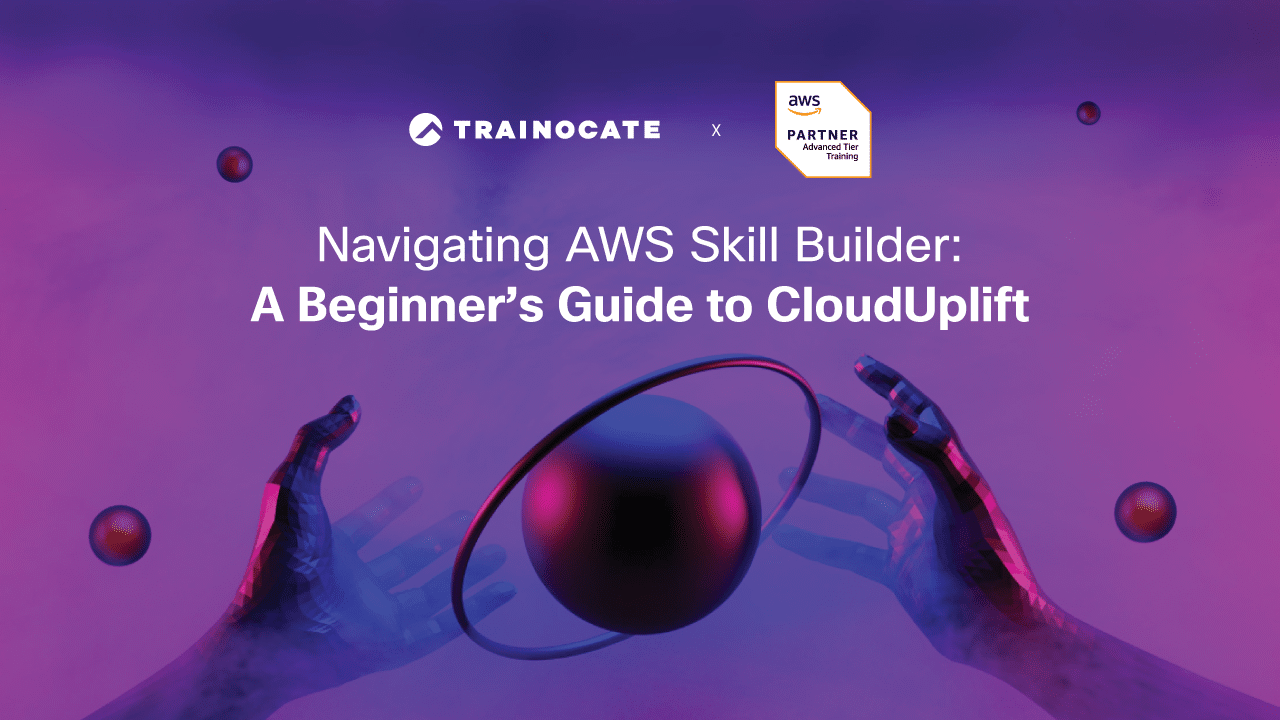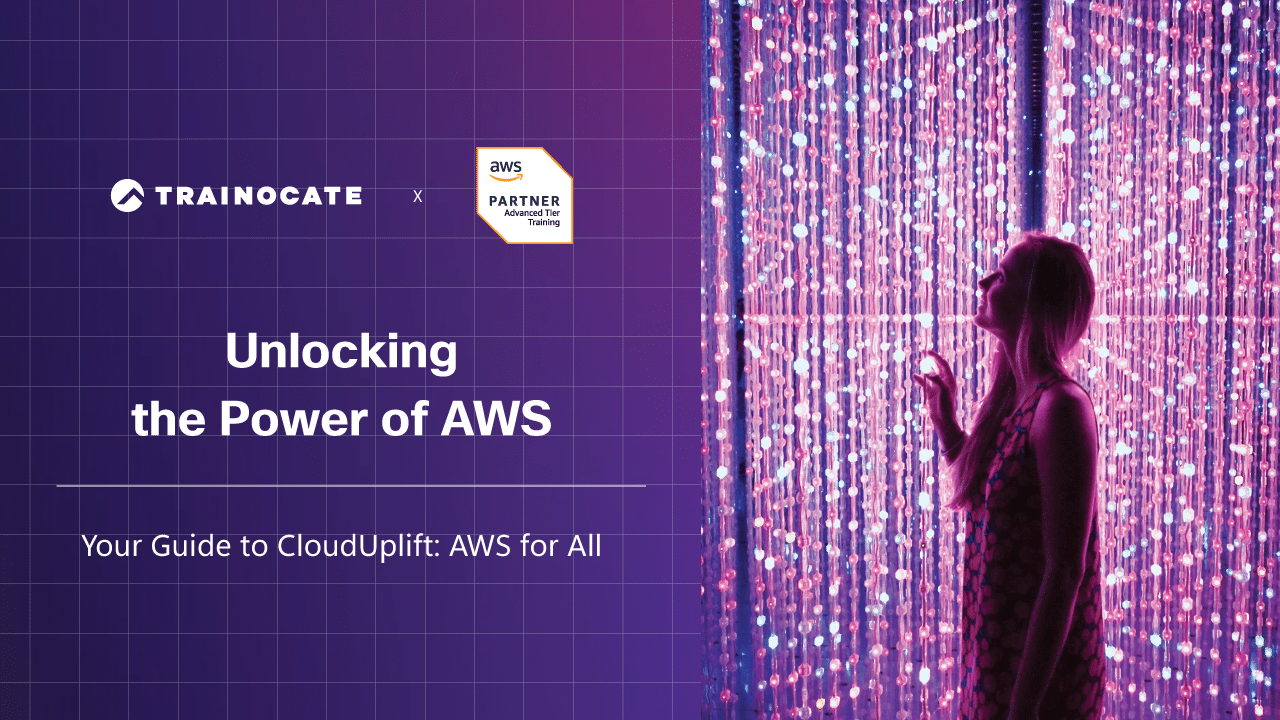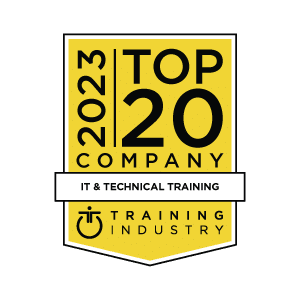Are Cloud Certifications Still Relevant in 2024?
Are Cloud Certifications Still Relevant in 2024?

The Importance of Cloud Certifications in 2024
In today’s world of technology, cloud computing has become the backbone of numerous industries. With its ability to provide scalable and flexible solutions, businesses are increasingly adopting cloud technology.
Cloud computing, being one of the top IT skills in 2023, has revolutionized how organizations manage their data, applications, and services. Its cost-effectiveness, ease of access, and ability to handle massive workloads have made it a game-changer in the modern business landscape.
This article aims to explore the cloud certifications of tomorrow and shed light on bridging the gap in 2024.
Benefits of Cloud Computing for Organizations:
- Enhanced Flexibility and Scalability: Cloud computing allows organizations to easily scale their resources up or down based on their needs. This flexibility empowers businesses to respond quickly to changing market demands and optimize their operations accordingly.
- Cost Optimization: By adopting cloud services, organizations can eliminate the need for large upfront investments in infrastructure. Cloud computing operates on a pay-as-you-go model, enabling businesses to optimize costs by only paying for the resources they use.
- Improved Collaboration and Accessibility: Cloud computing enables seamless collaboration and data sharing among employees, regardless of their physical location. This accessibility empowers teams to work together efficiently, fostering innovation and productivity.
- Enhanced Security and Disaster Recovery: Cloud service providers invest heavily in robust security measures and disaster recovery protocols. By leveraging the expertise of these providers, organizations can enhance the security of their data and ensure business continuity in the face of unforeseen events.
According to Salesforce, there are a number of benefits of cloud computing:
- 94% of the business claimed saw an improvement in security after switching to the cloud.
- 91% said it the easier to meet government compliance requirement.
To fully grasp the benefits of using cloud computing, it’s important to have experts with cloud certifications. Whether you earn these certifications yourself or empower your team, it can bring significant advantages to your company.
Here’s why you should consider getting a cloud certification:

Is Cloud Certification Right For You?
Whether you are an experienced IT professional or someone exploring the IT space, a cloud certification can be a beneficial addition to your skill set. If you have some prior experience in IT or computer programming and wish to integrate cloud computing into your career, a certification can help you establish a solid foundation in this domain. Moreover, cloud computing is an in-demand skill with higher-than-average salaries for professionals in this field.
While hands-on experience is invaluable, a cloud certification can act as a differentiator, helping you stand out in a competitive job market. It can showcase your commitment to continuous learning and your dedication to staying updated with the latest cloud trends and technologies.
In fact, obtaining a cloud certification can offer you numerous advantages:
- Expanded career opportunities in the growing field of cloud computing.
- Increased employability and recognition for your expertise.
- Enhanced technical skills in cloud architecture, security, and automation.
- Confidence in working with cloud environments and making informed decisions.
- Personal and professional growth through continuous learning and networking opportunities.
Bridging the Gap: Addressing Challenges in Cloud Certifications
While cloud certifications offer promising career opportunities, there are certain challenges that professionals may encounter along their certification journey. Understanding and addressing these challenges is crucial for bridging the gap and ensuring success.
1. Lack of Standardized Cloud Certification Frameworks
Currently, there is a lack of standardized frameworks for cloud certifications. Different certification providers follow their own criteria and syllabi, leading to inconsistencies in certification programs. This can make it challenging for professionals to compare certifications and choose the most relevant ones for their career paths. Efforts are being made to establish industry-wide standards to address this issue and provide clarity to aspiring certified professionals.
2. Overcoming the Skills Gap in the Cloud Industry
As the demand for cloud professionals surges, there is a noticeable skills gap in the industry. Many organizations struggle to find candidates with the necessary cloud computing skills and experience. To bridge this gap, professionals should focus on continuous learning and upskilling. Pursuing cloud certifications can help individuals acquire the knowledge and expertise required to meet the industry’s demands.

Top Cloud Certifications to Consider in 2024
As cloud technology continues to evolve, various cloud service providers offer certifications to cater to the specific needs of IT professionals. Here are some of the top cloud certifications worth considering in 2024:
1. Amazon Web Services (AWS) Solutions Architect – Associate
The AWS Solutions Architect – Associate certification is designed to test your proficiency in deploying, managing, and using various services within the AWS environment. It covers essential technical concepts related to AWS cloud engineering and positions you for entry-level cloud-related jobs. If you are new to AWS, you may want to start with the AWS Certified Cloud Practitioner certification before pursuing the associate-level certification .
Cost: RM5,400.00 – RM6,105.00
What’s being tested: Compute, networking, storage, and database AWS services; deployment and management; basic architectural principles of building in AWS; global AWS infrastructure; network technologies in relation to AWS.
According to Simplilearn, having an AWS Solution Architect certification can be immensely advantageous, as it has the potential to significantly boost your salary. For beginners (1-4 years of experience), the average salary can be around RM 116,000. For mid-career professionals (5-9 years of experience), the average salary typically ranges around RM 146,290. More experienced individuals (10-19 years of experience) may expect an average salary of RM 164,983.
Interested in advancing as a solutions architect? Take advantage of our AWS Ramp Up Bundle Promo and save RM1500+! Be quick, time is running out!
2. Microsoft Certified: Azure Fundamentals
For those interested in building, running and managing application on Microsoft Azure, the Azure Fundamentals certification is a great starting point. It provides foundational knowledge of cloud services like IaaS and PaaS, benefits of using cloud services, and core Azure services such as virtual machines, containers, Kubernetes, and database services. This certification is valuable for candidates with both technical and non-technical backgrounds .
Cost: RM1,200.00 – RM1,459.00
What’s being tested: The differences between cloud services; benefits of using cloud services; core Azure services like virtual machines, containers, Kubernetes, and database services; understanding of Azure core solutions and management tools; basic security, including network security; and other subjects.
3. Google Associate Cloud Engineer
The Google Associate Cloud Engineer certification demonstrates your competency in basic aspects of working with Google Cloud. This includes setting up a cloud solution environment, managing storage and databases, configuring access and security, and more. It’s an excellent certification for individuals working with Google Cloud and its services .
Cost: $125
What’s being tested: Setting up cloud solutions, managing users in Cloud Identity, and billing configuration; planning and configuring compute resources, data storage options, and network resources; deploying Google Kubernetes Engine, applications; managing a virtual machine (VM), and more.
4. CompTIA Cloud+
The CompTIA Cloud+ certification is vendor-neutral and offers a comprehensive understanding of planning, deploying, and automating secure cloud environments. It covers topics such as disaster recovery, automation and virtualization, and information security within cloud technologies .
Cost: RM3,500.00 – RM5,183.00
What’s being tested: High availability, virtualization, network management, security, and other cloud-related concepts.
5. Certified Cloud Security Professional (CCSP)
The Certified Cloud Security Professional (CCSP) certification, offered by (ISC2), focuses on cloud computing security and information security. It teaches technicians how to use best practices to design, manage, and secure data and infrastructure in the cloud .
Cost: RM8,500.00
What’s being tested: Securing data and applications, platform protection, security operations, risk management, and more.
According to Unichrone, having a CCSP accreditation significantly impacts salary, particularly with increasing experience. Even at entry-level, CCSP holders earn higher than the norm, with salaries ranging from USD 109,000 for 3-5 years of experience, USD 117,000 for 6-8 years, and USD 122,000 for 9+ years.
6. AWS Certified Cloud Practitioner
The AWS Certified Cloud Practitioner certification is an entry-level certification that provides foundational knowledge of AWS cloud concepts, services, and terminology. It’s an excellent starting point for those new to AWS-specific cloud processes .
Cost: RM1,800.00 – RM2,270.00
What’s being tested: Understanding AWS Cloud concepts, AWS shared responsibility model, and basic architectural principles.
7. Google Cloud Digital Leader
The Google Cloud Digital Leader certification is designed for strategic leaders within tech teams. It equips them with essential knowledge about Google Cloud solutions, services, and best practices. This certification is ideal for individuals leading cloud-related initiatives within their organizations .
Cost: RM2,400.00 – RM2,870.00
What’s being tested: Google Cloud products, services, and features; best practices for cloud adoption; strategies for successful cloud implementations, and more.
8. Microsoft Certified Azure Security Engineer Associate
The Microsoft Certified Azure Security Engineer Associate certification focuses on scripting, automation, networking, virtualization, and cloud architecture within the Microsoft Azure environment. This certification demonstrates your skills in securing data and applications and managing security operations .
Cost: RM2,299.00 – RM3,423.00
What’s being tested: Configuring secure access in Azure Active Directory, managing security operations with Azure Monitor, Security Center, and Sentinel, and securing data and applications.
Conclusion
As the cloud continues to shape the future of technology, earning cloud certifications is crucial for professionals seeking career growth and development. By staying updated with emerging trends, addressing challenges, and pursuing in-demand certifications, individuals can position themselves as valuable assets in the ever-evolving cloud industry. Embrace the opportunities that cloud certifications bring and be at the forefront of the cloud certifications of tomorrow.
Remember, the journey to becoming a certified cloud professional requires dedication, continuous learning, and a passion for innovation. So, start exploring the cloud certifications landscape, set your goals high, and embark on an exciting career path in the cloud.
Want to learn about IT skills and certifications beyond cloud computing?
If you’re new to IT and need an easy-to-follow guide, take a look at our blog post called “Top IT Certifications for Beginners.” This detailed guide will help you get started on your path to earning IT certifications.
Use these informative blogs to boost your IT career. Enjoy learning!
FAQs
Q1: What is the significance of cloud certifications for IT professionals?
A1: Cloud certifications validate the skills and knowledge of IT professionals in cloud computing. They enhance employability, open doors to advanced roles, and boost earning potential.
Q2: How do I choose the right cloud certification for my career?
A2: Consider your interests, career aspirations, and current experience level. Focus on certifications that align with your goals and job role.
Q3: Are vendor-specific certifications better than vendor-neutral ones?
A3: It depends on your career goals. Vendor-specific certifications specialize in a particular cloud platform, while vendor-neutral ones offer broader knowledge applicable to various cloud technologies.
Q4: How can cloud certifications benefit my career growth?
A4: Cloud certifications increase employability, offer higher earning potential, provide opportunities for career advancement, and demonstrate your cloud-related expertise.
Q5: How can I prepare for a cloud certification exam?
A5: To prepare for a cloud certification exam, you can use study materials provided by the certification’s official website or take specialized courses and training programs offered by various platforms.





